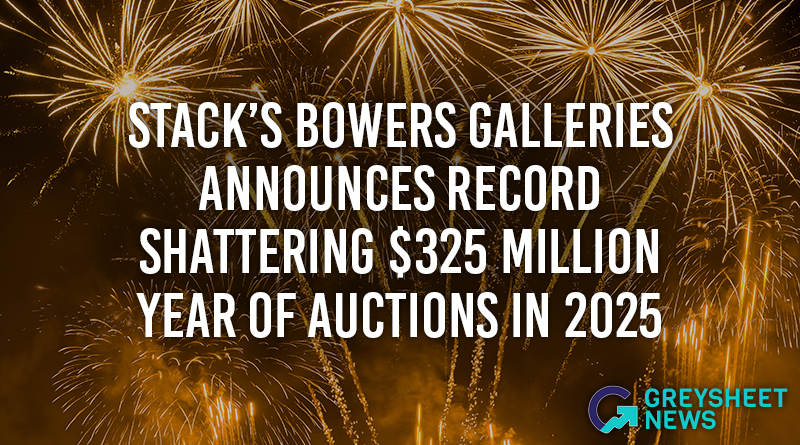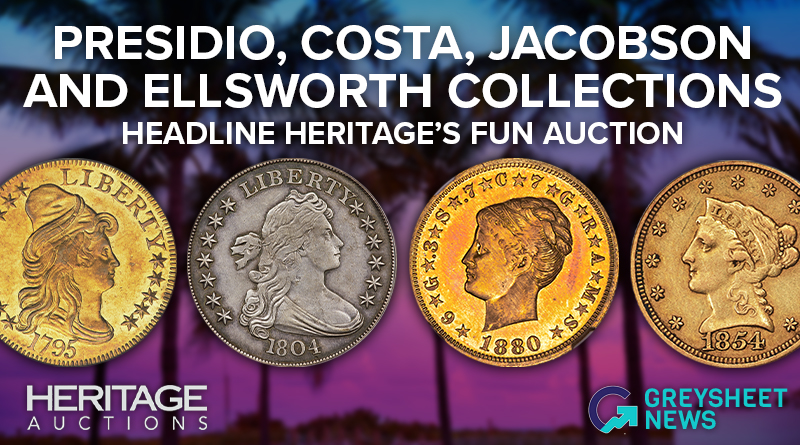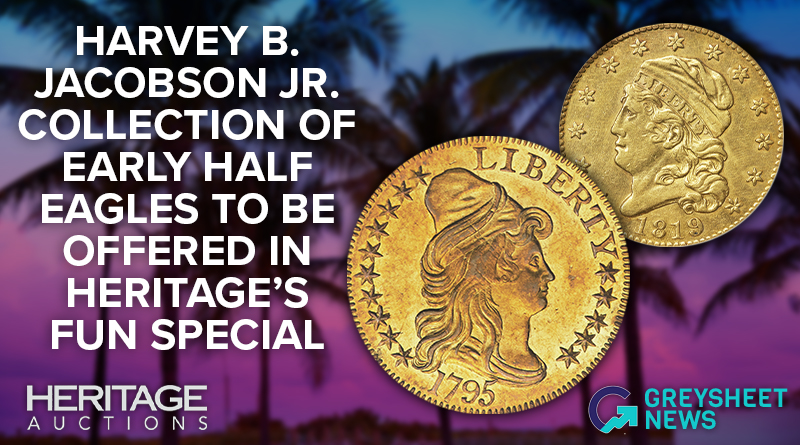Greysheet & CPG® PRICE GUIDE
- U.S. Coins /
- Colonial & Post-Colonial Issues /
-
(1659) Maryland-Lord Baltimore Values
Year
Sort by
About This Series
Calvert's coins bear his portrait on the obverse, with a Latin legend calling him "Lord of Mary's Land." The reverses of the larger denominations bear his family coat of arms and the denomination in Roman numerals. There are several die varieties of each. Many of these coins are found holed and repaired. The copper penny, or denarium, is the rarest denomination, with only nine reported specimens.
Catalog Detail
Legal Disclaimer
The prices listed in our database are intended to be used as an indication only. Users are strongly encouraged to seek multiple sources of pricing before making a final determination of value. CDN Publishing is not responsible for typographical or database-related errors. Your use of this site indicates full acceptance of these terms.










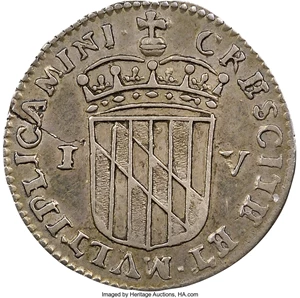









| Maryland-Lord Baltimore (1659) | Value Range | Favorite | |||
|---|---|---|---|---|---|
| Maryland-Lord Baltimore (1659) | Value Range | ||||
|
$120,000
-
$240,000
$120,000 - $240,000
|
||||
|
$10,000
-
$150,000
$10,000 - $150,000
|
||||
|
-
|
||||
|
$7,750
-
$72,000
$7,750 - $72,000
|
||||
|
$10,500
-
$93,500
$10,500 - $93,500
|
||||
From the Greysheet Marketplace
Buy Now: $14,453.13
Auction Ends: 12/29/2025
Buy Now: $1,063.75
Buy Now: $693.75
Buy Now: $950.00
Auction Ends: 12/29/2025
Buy Now: $346.88
Buy Now: $425.00
Auction Ends: 12/29/2025
Auction Ends: 12/29/2025
Related Stories (powered by Greysheet News)
View all news
Greysheet Catalog Details
Calvert's coins bear his portrait on the obverse, with a Latin legend calling him "Lord of Mary's Land." The reverses of the larger denominations bear his family coat of arms and the denomination in Roman numerals. There are several die varieties of each. Many of these coins are found holed and repaired. The copper penny, or denarium, is the rarest denomination, with only nine reported specimens.
Catalog Detail
Legal Disclaimer
The prices listed in our database are intended to be used as an indication only. Users are strongly encouraged to seek multiple sources of pricing before making a final determination of value. CDN Publishing is not responsible for typographical or database-related errors. Your use of this site indicates full acceptance of these terms.





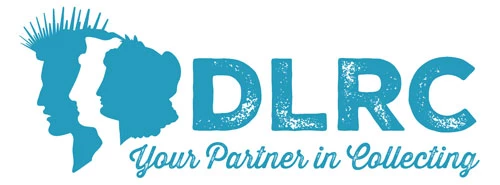




 Loading more ...
Loading more ...








